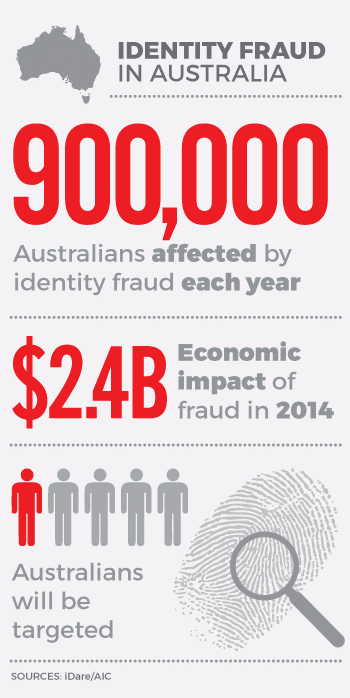How to protect yourself from cyber criminals


Online scams and other means of identity theft are increasing in sophistication, a new report has warned.
Last week, a report compiled by the Australian Institute of Criminology (AIC) revealed that the private information of about one in five Australians had been targeted at some point during their lives, with almost one in 10 victimised in the last 12 months.
“Scams used to be more obvious but more recently criminals are doing more detailed research about individual circumstances,” AIC principal criminologist Russell Smith told The New Daily.
• How hackers are able to hold your iPhone to ransom
• Android update better protects your privacy
• Why you should update to Apple iOS 9
 “They tailor the scam to suit the victim’s interests and background so that it looks more legitimate and they use that to win you over. Social media such as Facebook and LinkedIn are strong platforms for this if privacy settings haven’t been utilised.”
“They tailor the scam to suit the victim’s interests and background so that it looks more legitimate and they use that to win you over. Social media such as Facebook and LinkedIn are strong platforms for this if privacy settings haven’t been utilised.”
The report identified the most common forms of identity theft as online credit card transactions, online banking, unsolicited emails directed to a fabricated website and computer hacking.
In the last two to three years, extortion attempts — usually through encryption — and email phishing crimes rose, Mr Smith said.
“Since people are using their smart phones more and more for online banking and online shopping, it poses some danger as the level of security on mobiles is less effective.
“Often it is small businesses that are targeted to pay a ransom to have their information decrypted. I have even heard of incidents where people have received threats of personal violence.”
A terrible cost to society
Five per cent of the 5,000 Australians surveyed by the AIC reported out of pocket losses where the money lost was unrecoverable.
But the sly work of identity thieves can cause more damage than financial loss alone. This may include being refused credit, experiencing psychological stress or being wrongly accused of a crime. One survey respondent actually reported having been arrested.
An identity security expert told The New Daily that, by his firm’s estimate, more than 900,000 Australians were impacted each year by identity fraud and that less than five per cent of these identity thieves were caught, with even less convicted.
“I think the cross-jurisdictional nature of the crime makes it incredibly difficult for law enforcement,” iDcare managing director David Lacey said.
“Identity thieves don’t even have to step foot in Australia to make an impact.”
Most recent figures indicated a national economic impact of $2.4 billion for 2014.
How to protect yourself

Report anything suspicious immediately. Photo: Shutterstock
In addition to reporting the crime to police, it may be beneficial to obtain a victim certificate from a local magistrates’ court that can be used if the victim later encounters problems with banks or the police.
Other actions that can be taken are to notify creditors and credit reporting agencies, obtain a credit report, cancel credit cards, regularly change passwords and PINs, run weekly anti-virus and anti-spyware programs on computers and dispose of personal information in a paper shredder.
Signs to watch out for include unaccountable withdrawals, the inability to log in to an account, credit refusal, receiving bills for unknown accounts and missing statements.
Face-to-face scams
While not as prevalent as online schemes, methods of face-to-face identity theft still exist.
Fictitious job interviews, door knocking, fabricated conferences for academics and beauty competitions are some of the most common means by which thieves are currently obtaining personal information.
What is the government doing?
A spokesperson from the Attorney-General’s Department said that building on the success of the Document Verification Service currently being used to check the authenticity of documents, a National Facial Biometric Matching Capability will be introduced by late 2016.
This new service will tap into the technology used by SmartGate facial recognition systems at airports and will assist government agencies in combatting identity crime by confirming the legitimacy of facial images on documents such as passports.









